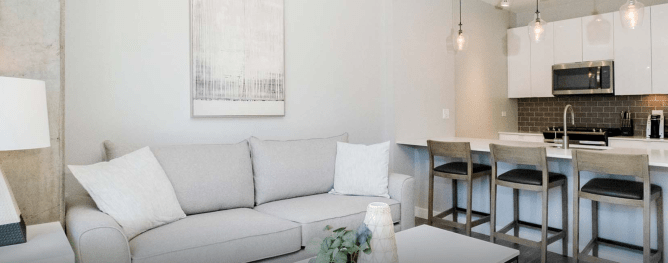The rise of remote work has led to an increase in demand for flexible, shorter-term living arrangements. In response, various startups have emerged with innovative solutions to meet this growing need.
Flow Raises $350 Million from Andreessen Horowitz
Last week, Dealbook reported that Flow, a flexible living startup founded by WeWork co-founder Adam Neumann, has secured $350 million in funding from Andreessen Horowitz. This investment brings the total amount raised by Flow to an impressive sum, underscoring the growing interest in this emerging market.
Zumper Raises $30 Million in Series D1 Funding
In related news, Zumper, a short-term rental startup, has announced that it has raised $30 million in Series D1 funding. This investment will enable the company to further expand its offerings and improve its platform for users.
The Rise of Flexible Living Startups
The growing demand for flexible living arrangements is driving innovation in the real estate industry. Various startups are offering unique solutions, such as co-living spaces, short-term rentals, and mobile homes. These companies are attracting significant investment from venture capital firms, who see the potential for long-term growth.
Key Players in the Flexible Living Market
Some notable players in this emerging market include:
- Landing: A flexible living startup that offers short-term rentals and co-living spaces.
- Blueground: A provider of fully-furnished apartments for rent on a monthly basis.
- Sonder: A short-term rental company offering luxury accommodations.
- Zeus Living: A platform providing access to luxury vacation homes.
Industry Trends and Insights
The flexible living market is still in its early stages, but it’s already showing significant growth. As more people adopt remote work arrangements, the demand for flexible living options will continue to increase.
Some key trends and insights in this industry include:
- Increased investment: Venture capital firms are pouring money into startups offering flexible living solutions.
- Growing demand: The rise of remote work is driving demand for short-term rentals and co-living spaces.
- Innovation: Startups are introducing new business models, such as mobile homes and modular housing.
Conclusion
The flexible living market is experiencing rapid growth, driven by the increasing demand for short-term rentals and co-living spaces. As more people adopt remote work arrangements, this trend is likely to continue. With significant investment pouring into startups in this space, we can expect to see innovative solutions emerge to meet this growing need.
About the Author
Connie Loizos is the Editor in Chief and General Manager of TechCrunch, where she has been reporting on Silicon Valley since the late ’90s.

